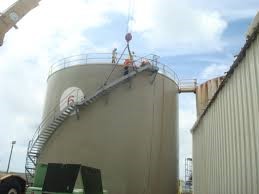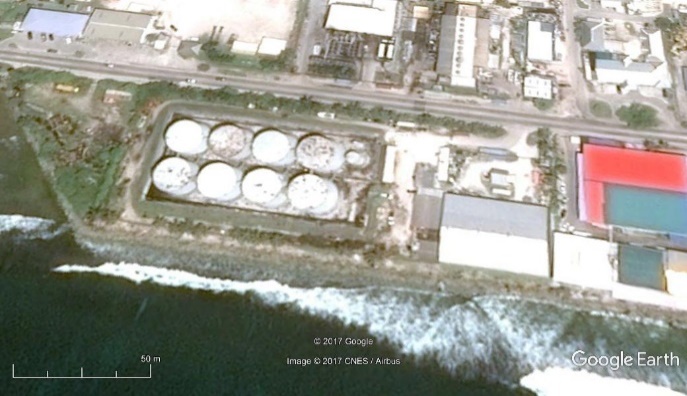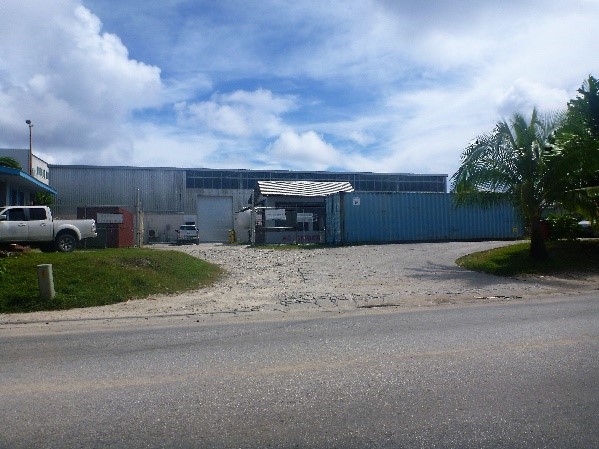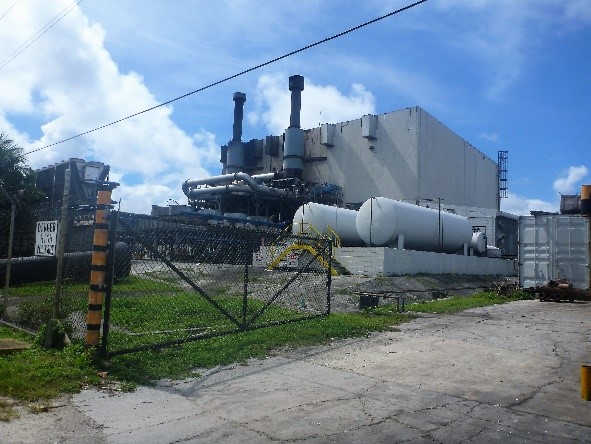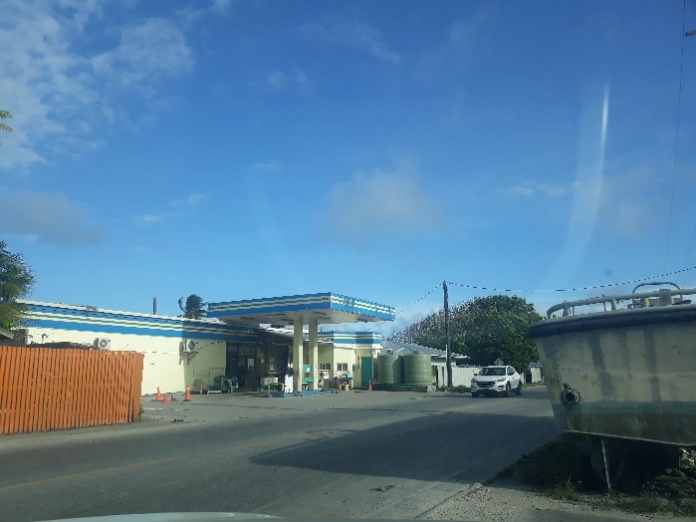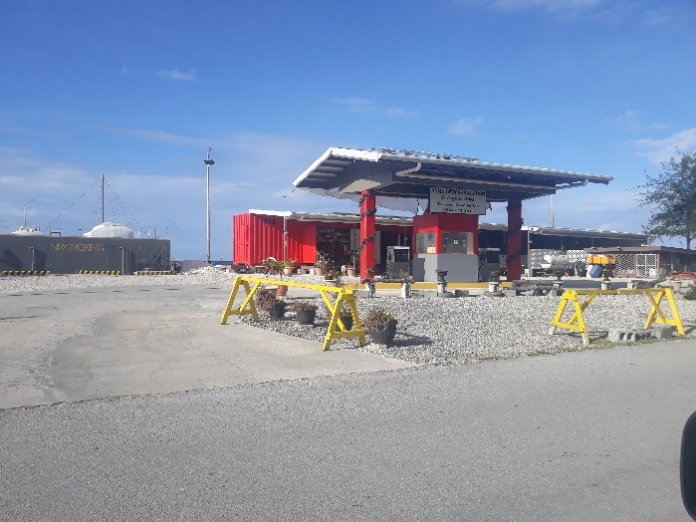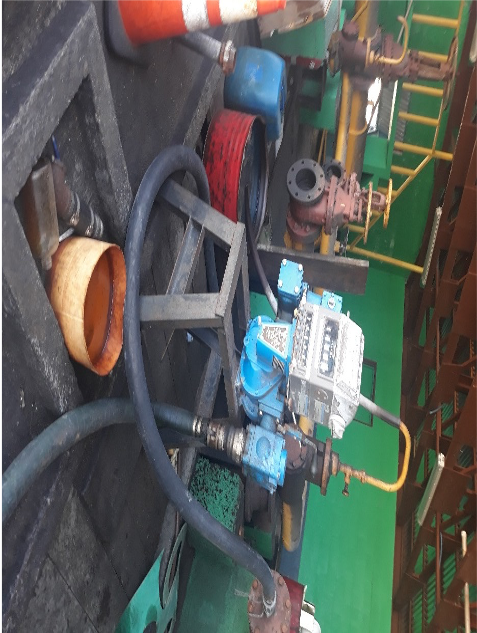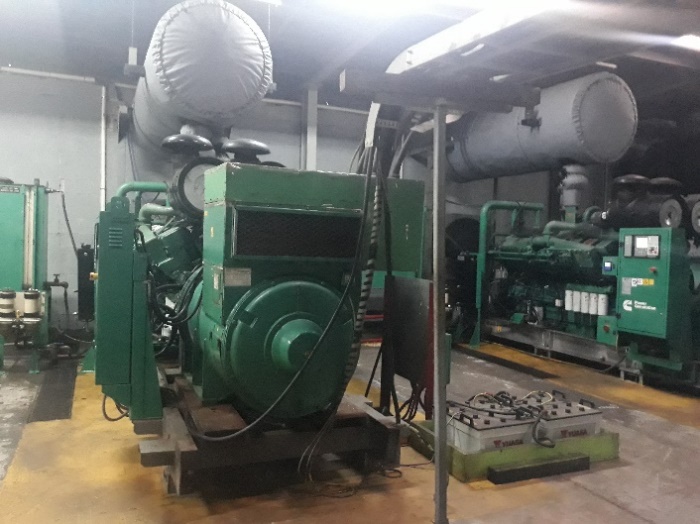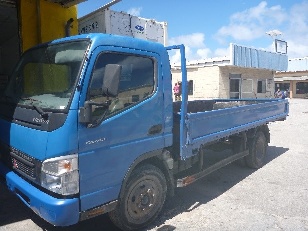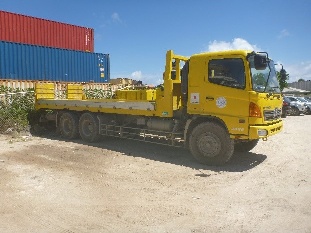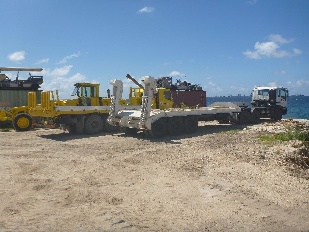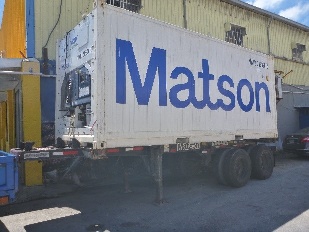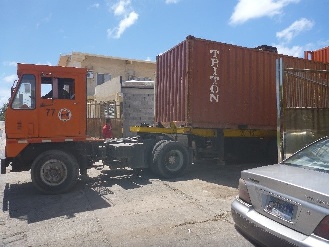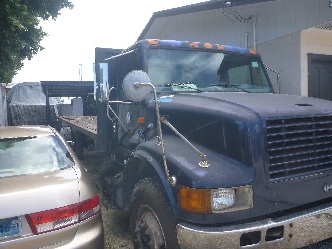Marshall Islands - 3 Marshall Islands (RMI) Services and Supply
Few services exist outside the capital on Majuro Atoll. All goods are imported into RMI, except for a few items including tuna and coconut products. The retail and business sector relies on the import of goods from China, Nauru, Fiji, Taiwan, South Korea and the United States.
The retail sector consists of several multi-sector supermarkets providing items ranging from food, clothing kitchenware, white goods, sporting goods, and hardware. There are four main supermarkets – K and K, Cost Price, Triple J and Formosa. Goods are expensive and small local convenience stores are scattered throughout the communities availing various items for daily use.
While there is a computer store and stationary supplies store, predominantly small entrepreneurs operate niche services and stores based on importing of goods from boat motors to engine oil.
Importing spare parts and finding skilled service technicians to repair is challenging for anything other than basic repairs. Evidence of this is the plethora of car bodies and heavy equipment carcasses scattered throughout the atolls unable to be repaired.
Marshall Islands - 3.1 Marshall Islands (RMI) Fuel
Fuel Overview
Most of the primary energy supply (88%) in RMI comes from petroleum, with biomass used for cooking accounting for nearly all the rest. Solar electricity generation is expanding rapidly but contributed to less than 12% of RMI energy in 2019. Biofuel from coconut oil is also increasing. Imported petroleum-based products are gasoline, diesel fuel, dual purpose kerosene (used both as aviation turbine fuel and household kerosene) and LPG.
There are two main fuel suppliers in RMI: state-owned Marshall Island Energy Company (MEC) and Mobil. Gasoline and aviation fuel (Jet A1 and Avgas) are imported by Mobil. Automotive diesel oil and LPG gas are imported and distributed by MEC. Diesel is primarily used to produce electricity throughout the major atolls and for the fishing industry and retail supply.
MEC is the state-owned utility company and in charge of generating and distributing 120V 60Hz electricity in Majuro, Jaluit and Wotje. Other islands are running on solar power. Due to the high purchase cost, the use of solar panels in Majuro and other islands is low. Taiwan has deployed a solar power program focused on the minor atolls/islands. MEC controls six power plants (75 kW to 13 MW) located on 5 different islands and provides support services to three small power plants on other islands. Additionally, MEC oversees the operation of the various water and sewage operations located on several islands. It is also responsible for implementing a nationwide renewable energy program covering 27 atolls. This entails upgrading diesel generation and network and control systems, followed by adopting renewable technologies and storage to achieve RMI’s renewable energy targets. Development partners are focused on renewable energy support. The World Bank is supporting solar photovoltaic and diesel power generation on Majuro. The EU is helping to improve energy efficiency, including replacement of transformers, and is supporting an energy sector management bill.
The Marshall Islands are served by two government-owned electric utility companies: Marshall Island Energy Company (MEC) and Kwajalein Atoll Joint Utilities Resources (KAJUR). MEC coordinates power generation and distribution services for the majority of RMI (Majuro, Jaluit and Wotje), while KAJUR, a subsidiary of MEC, services RMI’s second largest population centre, Ebeye.
In Majuro there is a 12.2 MW power plant with a 6-million-gallon diesel fuel storage capacity. In Jaluit and Wotje, both have a 275KW generator capacity available. There are four generators in Majuro that are more than 35 years old, and they are due to be replaced as they are becoming difficult and more expensive to keep in operation. There are also a 1 MW and 1.5 MW thermal generators at the site. The station can deliver 9.9 MW which is slightly above the peak load demand of 9 MW. The Asian Development Bank (ADB) is donating four 1.8 MW generators, including an upgrade for the distribution network. The generators are onsite but are not yet operational. Majuro has three different feeders in place: Majuro town, Majuro hospital and Laura. Only in Majuro is there the capability to remotely monitor the electricity network. Information sharing with customers on blackouts and other issues are done via text messaging.
The power supply for Ebeye Island and surrounding islets consists of the generation plant containing three diesel generators (1.2 MW each) and associated power distribution network. The maximum peak demand of the island is 3 MW. Within Ebeye Island, the distribution network includes high voltage underground power lines, power transformers, junction boxes, as well as low voltage overhead distribution lines on power poles.
For more information on government and fuel provider contact details, please see the following links:
4.7 Fuel Providers Contact List
|
Mobil aviation fuel bunker in Majuro |
|
|---|---|
|
MEC Bunker in Majuro |
|
|
MEC Retail propane filling station |
|
|
Majuro central power generator |
|
|
Gas station in Majuro |
|
|
Gas station in Majuro |
|
|
Fuel station at the Delap Dock in Majuro |
|
|
KAJUR-managed generators in Ebeye |
|
Diesel Powered Electricity
Diesel powered electricity generation is the main source of lighting used in the country, followed by solar energy. It imposes high costs and jeopardizes energy security. Protection system deficiencies impact the life and usability of the generators. Diesel generators are being replaced with smaller and more efficient units in the power station under an ongoing World Bank-funded project to ensure better renewable integration.
Fuel Pricing
Like other island nations in the Pacific, the RMI suffers from high and volatile fuel prices while lacking any known fossil fuel reserves of its own. Based on the Retail Price Monitoring Act from 1992, fuel is considered an essential commodity, and if prices charged by a retailer for any essential commodities are in excess of 25% over the actual cost paid for the essential commodity plus the relevant transportation and shipping costs, the Government can implement price controls.
Electricity rates are linked to fuel prices and are proposed by the MEC and approved by the government. Rates have not changed since 2014 and apply to all MEC and KAJUR grid customers. Cross subsidies apply in MEC where profits from fuel sales subsidize electricity customers and in KAJUR where electricity revenue subsidizes water costs. Government policy provides an electricity allowance of 1,000 kWh per month to owners of land on which MEC’s network assets are located.
Seasonal Variations
Seasonal variations do not cause any changes in supply to the main port of Majuro, where fuel bunkers are located. Inter-island transport, however, can become vulnerable to delivery issues during the November to March rainy season.
|
Seasonal Variations |
|
|---|---|
|
Are there national priorities in the availability of fuel? (i.e. are there restrictions or priorities for the provision of fuel such as to the military?) |
Priority is electricity generation. |
|
Is there a rationing system? |
No |
|
Is fuel to lower income / vulnerable groups subsidized? |
Yes - Lifeline tariffs apply to 60% of customers. Cross subsidies apply in MEC where profits from fuel sales subsidize electricity customers and in KAJUR where electricity revenue subsidizes water costs. Government policy provides an electricity allowance of 1,000 kWh per month to owners of land on which MEC’s network assets are located. |
|
Can the local industry expand fuel supplies to meet humanitarian needs? |
Yes - MEC maintains a 4–6-week buffer of diesel for electricity generation |
|
Is it possible for a humanitarian organization to directly contract a reputable supplier / distributor to provide its fuel needs? |
Yes |
Fuel Transportation
Bulk fuel is transported directly into Majuro to bulk tanks for Mobil and for the MEC. Fuel is transported using 15,000 Ltr tankers. Bulk fuel supplies from Majuro are provided to the outer islands of Jaluit, Ebeye, Kili and Wotje for their central power generation. Outer island domestic supplies are carried in 20 Ltr and 200 Ltr Drums. Clipper Oil also service the substantial fishing industry with MGO and can provide by tanker Jet A1 and ULP.
Bulk inter-island fuel supplies are carried by way of vessel fuel tanks in 400-500 MT vessels. Vessels are supplied by MISCO, use the fuel tanks for storage and discharge at atoll ports. The atolls of Kili, Jaluit and Ebeye and Wotje all have central power generation requiring bulk fuel supplies.
Outer islands receive fuel in 20 and 200 liters drums for local refuelling of generators and vehicles.
Standards, Quality and Testing
There are no quality testing facilities in RMI. Fuel supplies are tested by SGS in Guam. Technical personnel are flown in to undertake sampling of imported bulk fuel upon arrival.
|
Industry Control Measures |
|
|---|---|
|
Do tanks have adequate protection against water mixing with the fuel? |
Bulk Fuel -No |
|
Are there filters in the system which monitor where fuel is loaded into aircraft? |
n/a |
|
Is there adequate epoxy coating of tanks on trucks? |
n/a |
|
Is there a presence of suitable firefighting equipment? |
Yes |
Marshall Islands - 3.2 Marshall Islands (RMI) Transporters
There are no dedicated road transport companies in RMI. Majuro is the only Atoll with a significant length of road, being 50 km in total. The main nationwide transport is by the sea.
On Majuro atoll there are several retail outlets and general freight/construction companies who operate their own vehicles which may be available on an ad hoc basis. Generally, these consist of 1 MT, 2 MT trucks and 15 MT flatbed trucks.
The RMI Ministry of Public works department also has some vehicles mainly for carting heavy equipment and materials.
The Majuro Stevedore and Transport Company (MSTCO) operates 60 container chassis trailers for the delivery of containers to customers from Delap dock. They operate two prime movers to move and drop the containers with the trailers to customers where they stay for up to 10 days while the container is unloaded. The container with the trailer is then picked up and returned to Delap Dock. They also operate two side lift trailers for the dropping and picking up of containers.
For more information on transport company contact details, please see the following link: 4.8 Transporter Contact List here.
|
K and K Super Markets Transport Capacity Summary |
|||
|---|---|---|---|
|
Regions Covered |
Majuro |
||
|
|
Number of Vehicles |
Capacity per Vehicle (MT) |
Comments / Condition of Vehicles |
|
1MT Vans |
6 |
1 |
Average |
|
Total Capacity |
|
6 |
|
|
Public Works Department Transport Capacity Summary |
|||
|---|---|---|---|
|
Regions Covered |
Majuro |
||
|
|
Number of Vehicles |
Capacity per Vehicle (MT) |
Comments / Condition of Vehicles |
|
2 MT trucks |
6 |
2 |
Good to Average |
|
8-15 MT Trucks |
10 |
1 |
Good to Average |
|
Total Capacity |
|
112 |
|
|
Majuro Stevedores Department Transport Capacity Summary |
|||
|---|---|---|---|
|
Regions Covered |
Majuro |
||
|
|
Number of Vehicles |
Capacity per Vehicle (MT) |
Comments / Condition of Vehicles |
|
2x prime movers |
2 |
2 |
Good to Average |
|
Container chassis trailers |
60 |
25 |
Good to Average 30 new /reconditioned |
|
Typical 2MT truck on Majuro |
15MT dual axle truck- Dept of Public Works |
|---|---|
|
|
|
|
Various plant trailers |
Reefer container and chassis trailer waiting fir unloading |
|
|
|
|
MSTCO container chaise being delivered in Majuro |
10-12 MT Flat bed truck |
|
|
|
Marshall Islands - 3.3 Marshall Islands (RMI) Manual Labour
Marshall Islands - 3.4 Marshall Islands (RMI) Telecommunications
Due to the large geographical area of the country, the use of VHF and HF radio is widespread and often the only means of communications when on the outer islands/atolls. Kili Island, Jaluit, Rongelap, Wotje, and Bikini Atolls have cell phone/satellite phone/fax systems available. International Roaming services are available from some countries and with some service providers. Local SIM cards and cell (mobile) phone rental services are also available for purchase or hire. Most accommodation providers offer Wi-Fi access areas.
An in-country assessment was conducted from the 17th February to 4th March 2023. As a result, the below Operational Emergency ICT Infrastructure was identified.
|
Responsible Agency / Project |
Infrastructure / Equipment |
Description |
|---|---|---|
|
National Telecommunications Authority (NTA)
|
Cellular phone |
The 2G/3G/LTE network in Majuro and Ebeye, 7114 users country-wide |
|
Fixed voice services |
|
|
|
Wi-Fi hotspots with repeaters |
|
|
|
Fixed broadband (DSL) |
23,000 subscribers, internet, mobile, DTV on copper and fibre network |
|
|
Digital TV (IPTV) |
Main atolls/islands |
|
|
Satellite Phones |
||
|
NDMO |
5 phones |
3 x Iridium PTT and 2 x Thuraya IP+ enroute/shipped from Dubai |
|
MIPD |
3 phones |
3 x Iridiums |
|
Red Cross |
1 phone |
1 x Iridium plus rooftop ant |
|
WSO |
1 phone |
In Head-Office at airport 1 x Iridium |
|
IOM |
4 phones, 6 x iReachs |
Iridium and Delorme iReachs |
|
NTA |
2 phones |
Iridium |
|
VHF Radio |
||
|
MIPD, Atoll- Police, Fire, ambulance |
70 hand-helds, 4 x repeater---in procurement phase, 80 x handhelds Majuro atoll |
P1100d x 70, Icom Rptr x 4, IC1000 x 80 |
|
NDMO |
2 handhelds |
GP328 x 2 |
|
Red Cross |
5 handhelds |
IC-F3001 x 5 |
|
IOM |
5 handhelds |
Baofeng UHF x 3, 2 x Motorola handhelds |
|
HF Radio Network |
||
|
NDMO |
Network countrywide |
PREP II planned |
|
Hospital/MoH OIDS |
Network countrywide |
Icom IC718s |
|
Spectrum Monitoring |
||
|
Ministry/Regulator |
Spectrum monitoring station with VHF and HF equipment |
Mobile monitoring unit AoR scanners |
|
Early Warning System |
||
|
WSO |
1 unit |
Chatty Beetle |
|
AM/FM Radio Broadcast |
||
|
V7Ab |
FM stations |
(in MHz) 103.5 |
|
AM radio country-wide and outer islands |
1098 KHz |
|
|
TV |
||
|
NTA IPTV |
|
45 channels |
|
INTERNET PENETRATION |
||
|
|
Internet |
38.7 % of population use |
|
|
Social media |
38.7 % of population use |
The assessment concluded that there were no back-up emergency communications links available between the NDMO Majuro and Ebeye offices, nor between NDM and NDC members. The World Bank funded PREP II project, amongst other preparedness activities, is in the process of upgrading the NDMO’s HF and VHF capacity, with radios being installed on all atolls and populated islands. The goal is to deploy 80% of these by the end of 2023.
Ongoing projects to upgrade ICT capacity:
- National Disaster Management Office (NDMO) Very High Frequency (VHF) repeater and High Frequency (HF) network, which will be installed country-wide through the World Bank funded Pacific Resilience Project- Phase 2 (PREP II), with 80% implementation planned by the end of 2023 should be used as central point of emergency communications between National Disaster Committee (NDC) members and their partners.
- The NDMO National Emergency Operations Centre (NEOC) in Majuro requires a 100 ft (or similar) mast to be installed (to provide better coverage for its future radio bases), a back-up generator and solar-power, these items will be provided during the PREP II project implementation.
- A dedicated Iridium satphone including docking station should be permanently installed in NDMO Majuro and Ebeye. Three Iridium PTT devices, including docking stations have been donated and were shipped to Majuro and Ebeye in March 2023 by WFP.
- A Thuraya IP+ data terminal should be available to NDMO in both Majuro and Ebeye, providing data access during rapid emergency deployment. Two units have been donated and sent to Majuro, March 2023 by WFP.
National Telecommunications Authority (NTA)
The NTA was established in 1987 and privatised in 1991. It still is majority owned by the national government. NTA is the only Mobile Network Operator (MNO) and Internet Service Provider (ISP) in RMI, with existing 2G, 3G and LTE services, with 5G planned for 2024. They also provide internet via DSL, and fibre optics to Majuro, Ebeye, Jaluit, Kili and Wotje. On the outer islands NTA has installed DAMA systems. This system consists of a small VSAT- 512kbps up to 1Mbps links, wifi access points, a laptop connected to the internet and a phone, its installed in 70 schools around the country. The system is solar powered. Due to the harsh environment (salt water, high humidity), the system tends to break down. Therefore, the DAMA installations require a lot of maintenance. NTA sends out their maintenance teams every 3 months for maintenance and servicing.
The data backbone to the country is provided through the HANTRU-1 submarine cable from Guam installed in 2009. It has its cable landing directly to the NTA building in Majuro and provides a 6 Gbps link. A further onward cable is laid and links Majuro to Ebeye, with 2 Gbps capacity. There is no redundancy loops or links, a single point of failure exists if the Guam link fails. A VSAT based redundancy in Majuro is provided with a dedicated 100 Mbps satellite-based back-up, bandwidth can be scaled up at short notice in times of emergencies or undersea cable faults. The NTA back-up VSAT in Ebeye hasn’t worked in 6 years.
NTA has signed the Satellite Crisis Connectivity Charter and is a member of the GSM association (GSMA).
NTA also provides IPTV services via its MHTV+ platform, offering 4K HDR, 45 channels. On-Demand allows users to browse freely to watch news, movies, sports, and live events. NTA launched this service in December 2021.
A bulk SMS system type Emergency Cellular Broadcast (ECB) system is being used. Several government services utilise mass texting. The system is being used as an early warning system (EWS) by NDMO free of charge and has the capacity to reach 15 to 20 thousand people. For mobile money service, NTA is only providing the network to allow customers of the Bank of Marshall via SMS to conduct monetary transactions.
The NTA building in Majuro is connected to mains power and has generator backup. There are two generators available, a 320 and 400 Kva. The building has a full UPS back-up system as well.
A HF base is operational in Majuro and Ebeye, both are Icom IC-718’s. The Majuro station (callsign V7AY65) is operational between 07:00 and 21:00 or on 24/7 bases in case of an emergency. Currently all emergency communication goes via the NTA station, while the crisis room is based at NDMO. Communication between both buildings is via email and phone only.
The mast for the HF antenna in Majuro is old and appears very flimsy. The radio is monitoring 6805 KHz for incoming calls from the outer islands. The radio is connected to a power supply and to the back-up supply of the building. There is no lightning arrestor, nor grounding installed for the HF radio.
There are two Iridium satellite phones available for use in the NTA radio room.
NTA is looking into telecommunication solutions for emergency preparedness. They have no Pacific wide HF network in place, though there is one being established through the UNDP/Japanese Government funded project Enhancing Disaster and Climate Resilience (EDCR) and is operational in Guam, Palau, Kosrae, Chuuk and Pohnpei. NTA is a member of PITA.
For more information on telecoms contacts, please see the following link:
3.5 Marshall Islands (RMI) Food and Additional Suppliers
Other than fish and coconut products RMI import all food goods. Food is retailed through 3 main supermarkets in the retail space and provides small wholesaling function attached to their main retail form of business. These super markets K and K, Cost Price and Formosa are the main food importers into the country. They can along with other local entrepreneurs import additional food stocks and other items as required.
There is a limited food processing industry in RMI comprising a Tuna cannery and Copra processing plant. There is no other food manufacturing in RMI.
Supplies of bulk food will need to be imported to meet additional humanitarian requirements. The supermarket and hardware stores, given the diversity of products they import and the existing connections they have, will be able to import a wide range of goods for humanitarian response.
The type and quality of goods to be imported however will need to be monitored closely as lower quality cheaper goods are generally what is stocked throughout retail outlets.
The Observatory of Economic Complexity – MIT (OEC): https://atlas.media.mit.edu/en/profile/country/mhl/
Marshall Islands - 3.5.1 Marshall Islands (RMI) Food Suppliers
Overview
Other than fish and coconut products, RMI imports all food goods. Food is retailed through four main supermarkets in the retail space, which provide small wholesaling functions attached to their main retail form of business. These supermarkets K and K, Cost Price, Triple J and Formosa, and are the main food importers into the country. Along with other local entrepreneurs, they can import additional food stocks if required. There is however no food processing industry in RMI.
All supermarkets sell dairy, meat products, rice, sugar, oils, cereals and pulses.
For more information on food supplier contact details, please see the following link:
Retail Sector
The primary retail sector is comprised of three local supermarkets, who are direct importers of their products and compete. There are no global retailers.
|
Types of Retailers Available |
|
|---|---|
|
Type of Retailer |
Rank (1-5) |
|
Supermarket – concentrates mainly in supplying a range of food, beverage, cleaning and sanitation products; have significant purchasing power; are often part of national/regional/global chains. |
2 |
|
Convenience Store/Mini Market – medium sized shop; offers a more limited range of products than supermarkets; usually has good/stable purchasing power; may be part of chain or cooperative. |
1 |
|
Permanent shop with strong supply capacity – individually/family-owned store; usually offers fewer commodities and a limited selection of brands; good storage and reliable supply options. |
4 |
|
Permanent shop with limited supply capacity – individually/family-owned store; offers fewer commodities and a limited selection of brands; limited storage and unstable supply options. |
5 |
|
Mobile Shop/Market Stand – individually/family-owned store; usually offers fewer commodities and a limited selection of brands; may be found at outdoor markets, camps or unstable environments. |
3 |
Wholesale Suppliers
Wholesale suppliers are the same retail supermarkets as listed above.
|
Supplier Overview |
|
|---|---|
|
Company Name |
K and K Supermarkets |
|
Address |
Lagoon Road Majuro |
|
Does the supplier have its own production / manufacturing capacity? |
No |
|
Does the supplier have its own retail capacity? |
Yes |
|
Does the supplier have its own transport capacity? |
Yes |
|
Does the supplier have its own storage facilities? |
Yes |
|
Approximate Turnover in mt |
n/a |
|
Payment Methods Accepted |
Cash or Card |
|
Supplier Overview |
|
|---|---|
|
Company Name |
Cost Price |
|
Address |
Lagoon Road Uliga |
|
Does the supplier have its own production / manufacturing capacity? |
No |
|
Does the supplier have its own retail capacity? |
Yes |
|
Does the supplier have its own transport capacity? |
Yes |
|
Does the supplier have its own storage facilities? |
Yes |
|
Approximate Turnover in mt |
n/a |
|
Payment Methods Accepted |
Cash or Card |
|
Supplier Overview |
|
|---|---|
|
Company Name |
Formosa |
|
Address |
Lagoon Road Majuro |
|
Does the supplier have its own production / manufacturing capacity? |
No |
|
Does the supplier have its own retail capacity? |
Yes |
|
Does the supplier have its own transport capacity? |
No |
|
Does the supplier have its own storage facilities? |
Limited |
|
Approximate Turnover in mt |
n/a |
|
Payment Methods Accepted |
Cash or Card |
|
Supplier Overview |
|
|---|---|
|
Company Name |
Triple J Supermarket |
|
Address |
Ebey Dock Road Ebeye |
|
Does the supplier have its own production / manufacturing capacity? |
No |
|
Does the supplier have its own retail capacity? |
Yes |
|
Does the supplier have its own transport capacity? |
No |
|
Does the supplier have its own storage facilities? |
Limited |
|
Approximate Turnover in mt |
n/a |
|
Payment Methods Accepted |
Cash or Card |
|
Other Locations |
|
|---|---|
|
Region(s) |
Service Location(s) |
|
Kwajalein |
Ebeye |
|
Primary Goods / Commodities Available |
||
|---|---|---|
|
Commodities by Type** (SITC Rev 4 Division Code - Title) |
Comments |
|
|
00 - Live animals (other than fish, crustaceans, molluscs, etc.) |
None |
Communities have chickens and pigs for local consumption |
|
01 - Meat and meat preparations |
Primarily chicken and pork. Processed meats such as sausages Canned spam processed ham and bacon |
|
|
02 - Dairy products and birds’ eggs |
Milk, yogurt, butter, cheese, eggs |
|
|
03 - Fish (not marine mammals), crustaceans, molluscs… |
Fish (chilled or frozen), fish (salted or in brine), fish liver and roes… |
Fish locally caught Tuna and Moi |
|
04 - Cereals and cereal preparations |
Predominantly rice, flour and pasta |
|
|
05 - Vegetables and fruit |
Vegetables, fruit and nuts, jams/jellies, fruit juice |
Fruit and vegetable supplies are all imported and occasionally are unavailable due to delays in the arriving shipment. There is no evidence of a cool store buffer stick mechanism for such contingencies |
|
06 - Sugars, sugar preparations and honey |
Processed sugars, processed honey, fruit/nuts preserved by sugar |
|
|
07 - Coffee, tea, cocoa, spices and manufactures thereof |
Coffee, cocoa, chocolate, tea, mate, pepper |
|
|
09 - Miscellaneous edible products and preparations |
Ready-to-eat foods, margarine, sauces, soups/ |
There is a large range of processed food available in supermarkets |
|
41 - Animal oils and fats |
There is a limited supply of animal fats |
|
|
42/43 - Fixed vegetable fats and oils, crude, refined or fractionated |
Olive oil and vegetable oil |
|
Marshall Islands - 3.5.2 Marshall Islands (RMI) Additional Suppliers
Overview
All goods are imported, and any goods required to support humanitarian missions are available on the local market only in small quantities.
Supply channels mostly come through Guam, and stocks available in Guam can be received in RMI within 1-2 weeks, depending on the timing of the shipping schedule.
For more information on suppliers’ contact details, please see the following link:
Wholesale
Due to the limited nature of wholesale and retail suppliers in RMI, companies listed as Food Suppliers are also potential suppliers of products other than non-food items:
|
Supplier Overview |
|
|
Company Name |
Doit Best hardware |
|
Address |
Lagoon Road Majuro |
|
Does the supplier have its own production / manufacturing capacity? |
No |
|
Does the supplier have its own retail capacity? |
Yes |
|
Does the supplier have its own transport capacity? |
Yes |
|
Does the supplier have its own storage facilities? |
Yes |
|
Approximate turnover in USD - $ |
n/a |
|
Payment Methods Accepted |
Cash or Card |
|
Supplier Overview |
|
|
Company Name |
Majuro Computer Services |
|
Address |
Lagoon Road Majuro |
|
Does the supplier have its own production / manufacturing capacity? |
No |
|
Does the supplier have its own retail capacity? |
Yes |
|
Does the supplier have its own transport capacity? |
No |
|
Does the supplier have its own storage facilities? |
No |
|
Approximate turnover in USD - $ |
n/a |
|
Payment Methods Accepted |
Cash at retail level |
|
Other Comments or Key Information |
Supplies computers and printers and offers repair service |
|
Supplier Overview |
|
|
Company Name |
Office Max Stationery supplies |
|
Address |
Lagoon Road Majuro |
|
Does the supplier have its own production / manufacturing capacity? |
No |
|
Does the supplier have its own retail capacity? |
Yes |
|
Does the supplier have its own transport capacity? |
Yes |
|
Does the supplier have its own storage facilities? |
Yes |
|
Approximate turnover in USD - $ |
n/a |
|
Payment Methods Accepted |
Cash at retail level |
|
Other Locations |
|
|
Region(s) |
Service Location(s) |
|
Kwajalein |
Ebeye Hardware |
|
Primary Goods / Commodities Available |
||
|
Commodities by Type** (SITC Rev 4 Division Code - Title) |
Comments |
|
|
24/27 - Crude materials, inedible, except fuel |
Fuel wood, crude fertilizers, sand/stone/gravel |
Sand and gravel obtained locally from coral reefs |
|
51 to 59 - Chemical and related products |
chlorine, pharmaceuticals, soaps, plastic tubes/pipes, chemical fertilizers |
All imported |
|
61 to 69 - Manufactured goods classified chiefly by material |
Rubber tyres, wood pallets, textiles, cement, iron/steel pipe fittings, copper wire, plastic water tanks. Tools |
All imported, available at Do it best hardware supply a large range of water hardware and tools |
|
71 to 79 - Machinery and transport equipment |
Engine/machine parts, generators, sewing machines, pumps, telecoms equipment, vehicles |
All imported. Specific vehicle parts need to imported on a case by case basis as only limited parts are available |
|
81 to 89 - Miscellaneous manufactured articles |
Lighting fixtures, furniture, clothing, medical/surgical instruments |
All imported |
|
91/93/96/97 - Commodities not classified elsewhere |
Computers and IT equipment |
Majuro computers have a small range if items plus have a limited servicing department |
**For FOOD products please see section 3.5.1 Food Suppliers, and for FUEL/PETROLEUM products please see section 3.1 Fuel.
Marshall Islands - 3.6 Marshall Islands (RMI) Additional Services
Overview
Due to the small population in RMI, service provision is basic, with only a small number of companies specialising in each sector. While this has limited competitive advantages, most businesses have been long established and operate reliably and successfully.
The services sector is responsible for 70% of GDP and is driven by government expenditure and grants from the United States under the Compact of Free Association (CFA). Agriculture and fisheries are the second-largest sector, (18% of GDP), while the industrial sector (12% of GDP) is dominated by construction and utilities.
For more information on company contact details, please see the following link:
4.11 Additional Services Contact List
Accommodation
Accommodation is limited in Majuro, with only two hotels and a few more guesthouses available. Marshall Islands Resort and RRE (Robert Reimer Enterprises) are the two main hotels in Majuro.
In Lojkar there is accommodation available for longer term rentals of 6-12 months. To stay on Kwajalein’s military base, a sponsor is required. In Ebeye, there is a hotel simply called Ebeye Hotel (managed by Marshall Islands Resort hotel).
Electricity and Power
MEC and KAJUR supply all electricity. The RMI has no electricity legislation or regulator, and no private generators licensed to sell electricity. MEC supplies 50% of the population from its diesel-based grid network on Majuro; and 16% using off-grid solar home systems (SHSs) and three mini-grid systems on the islands of Wotje, Jaluit, and Rongrong. KAJUR supplies 34% of the population from its grid network on Ebeye.
|
Electricity and Power Summary Table |
||
|---|---|---|
|
Production Unit |
Type (Hydroelectric, Thermal, etc.) |
Installed Capacity (MW) |
|
Marshall Island Energy Company |
Diesel Generated |
12.2 MW power plant with a 6 million Gallon diesel fuel storage capacity |
|
Marshall Island Energy Company |
Solar |
3,000 units of 200-watt SHSs |
|
Marshall Island Energy Company |
Photovoltaic generation (installed on customers’ premises connected to the MEC system) |
209 kilowatts (kW) supported by the Japan International Cooperation Agency (JICA) and 600 kW supported by the International Renewable Energy Agency |
|
Marshall Island Energy Company |
Diesel Generated |
Jaluit and Wotje: 275 KW generator capacity available in each location |
|
KAJUR |
Diesel Generated |
Three diesel generators (1.2 MW each) and associated power distribution network. The maximum peak demand of the island is 3 MW |
Financial Services
There are three main financial service institutions in RMI Western Union, Bank of Guam and Bank of Marshall Islands. WU offers wire transfer services, and the Bank of Guam offers banking and credit services. Bank of Marshall Islands offers banking services in four outer islands and has offices in three locations on Majuro Atoll.
|
Company Overview |
||
|---|---|---|
|
Company Name |
Bank of Guam (Headquartered in Guam) |
|
|
Address |
Lagoon Road Majuro |
|
|
|
Available? |
Comments (max / min transfer or exchange amounts, etc.) |
|
Has IBAN, BIC, or SWIFT number? |
Yes |
Routing Number: 121405115 |
|
Provides currency exchange? |
Yes |
|
|
Will initiate / receive wire transfers? |
Yes |
|
|
Provides Loan / Credit services? |
Yes |
|
|
Other Comments or Key Information |
||
|
Company Overview |
|
|---|---|
|
Company Name |
Western Union |
|
Address |
Lagoon Road, Uliga, Majuro |
|
|
Available? |
|
Has IBAN, BIC, or SWIFT number? |
Yes |
|
Provides currency exchange? |
No |
|
Will initiate / receive wire transfers? |
Yes |
|
Provides Loan / Credit services? |
No |
|
Company Overview |
|
|---|---|
|
Company Name |
Bank of Marshall Islands |
|
Address |
Uliga Branch |
|
|
Available? |
|
Has IBAN, BIC, or SWIFT number? |
yes |
|
Provides currency exchange? |
No |
|
Will initiate / receive wire transfers? |
Yes |
|
Provides Loan / Credit services? |
Yes |
|
Other Locations |
|
|---|---|
|
Region(s) |
Service Location(s) |
|
Outer Islands |
Laura (Majuro) Majuro Airport Ebeye Jaluit Wotje Kili |
Clearing and Forwarding Agents
There are only two Forwarding/Shipping Agents in Majuro. Matson shipping (Majuro Marine) based in the Port Authority building, and Delap Dock and CenPac RRE based at Uliga is part of RRE (Robert Reimer Enterprises).
Both Majuro Marine and RRE will handle clearance and handling of incoming consignments.
Handling Equipment
Materials handling equipment is available on an ad hoc basis. There is no rental company. However, freight and construction companies and the Department of Public Works are possible sources of lift equipment rentals, such as forklifts and small cranes.
Postal and Courier Services
Mail: The US Postal Service services RMI as a domestic destination. There are five post offices: The main office is in Uliga opposite RRE Hotel, the second is in the K&K Island Pride Supermarket complex, the third is at the airport, the fourth is in Ebeye, and the fifth (which was opened in May 2017) is in Jabor, Jaluit. The Post Office accepts mail and parcels addressed to individuals, followed by the phrase General Delivery (cruisers should include their yacht’s name).
Incoming mail: The post office is very reliable, but on occasion mail can take longer than the normal 10 days or so, and in the worst-case scenario the mail very occasionally ends up on a ship and takes a couple of months to get to RMI.
Couriers: DHL is represented by Pacific International Inc in Delap (625-3122), while Federal Express by RRE’s Central Pacific Maritime Agency (625-2021) in Uliga. Generally, they both only look after incoming parcels. Sending large items out of the country will require some research, depending on the type of item and its size.
Printing and Publishing
There is limited printing and publishing, and basic jobs can be handled by Office Max in Uliga and the copy centre opposite the Marshall Islands Resort.
Taxi Companies
Taxis are privately owned vehicles and operate mainly on Majuro and Ebeye. Essential driving in a clockwise direction on the same lagoon road. Taxis cost USD 1.50 for a 1-3 Km ride and USD 7 for a ride to the airport.
Vehicle Rental
There are several vehicle rental companies, and it is also possible to rent a private taxi or hire a vehicle with a driver for a mutually agreed amount for several days or a longer period.
Waste Management and Disposal Services
The Majuro Atoll Waste Company (MAWC), which is owned by the national government, and the Majuro Atoll Local Government, is responsible for solid waste collection, landfill management, and recycling. MAWC provides weekly collection services to around 2,500 households, and 82 commercial customers located in the area between the airport and Rita. The company does not provide service in the area between the airport and Laura, where approximately 500 households are responsible for transporting their wastes to Majuro’s dumpsite. However, due to the lack of available collection services, many households create backyard pits for disposal of waste, which pose environmental and public health hazards
